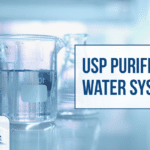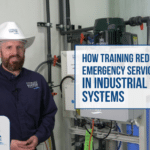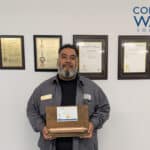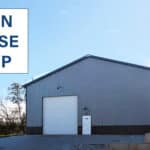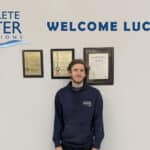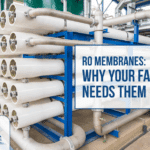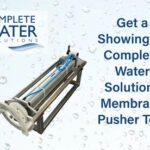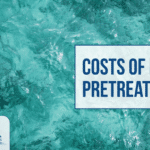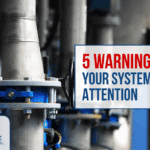Softener Using Too Much Salt? Industrial Softener Resin Replacement
Do you think your industrial water softener is using too much salt? Complete Water Solutions can help! Take a look below at one example where we helped our clients.
Complete Water Solutions performed a resin rebed recently on a triplex industrial softener. What prompted this rebed was the increased salt and water usage due to the decreased capacity. Over time water softener resin will lose its ability to soften the water – exchanging sodium ions for hardness ions. This decrease in capacity will set the regeneration trip point lower. Thus causing regeneration more, using more salt, and water. Let’s take a look at the breakdown to determine if the resin should be replaced:
Softener Specifications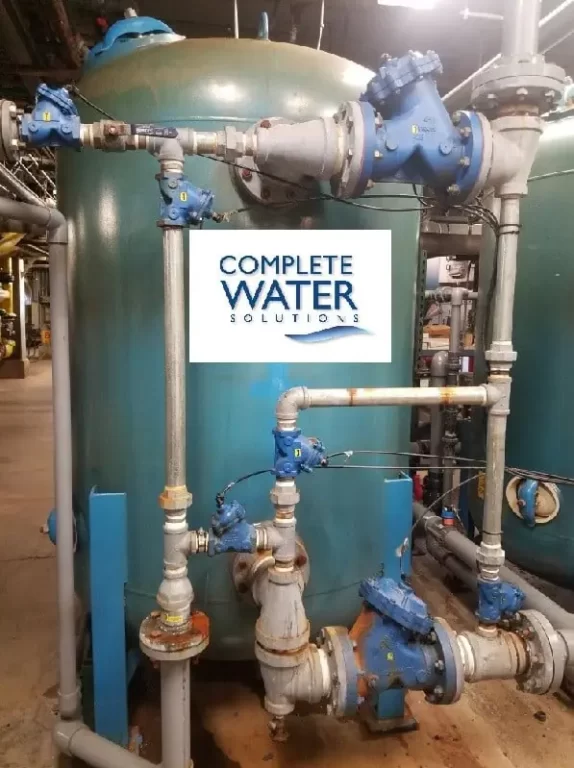
- 100 Cubic Feet Resin (Per Each Tank) 3,000,000 Grain Capacity
- 1,500 Lbs Salt Per Regeneration
- 1,000 Lbs Chloride Per Regeneration
- 6,744 Gallons Water Used Per Regeneration (Waste Water)
- 20 Grains Per Gallon Hardness
Annual Water Consumption
- 60,000,000 Million Gallons Water Used
Old Resin Set Points
- 79,000 Gallons Between Regenerations
- 759 Regenerations
- 1,138,500 Lbs Salt Annually
- 762,795 Lbs Chloride Annually
- 5,118,696 Gallons Of Waste Water
New Resin Set Points
- 150,000 Gallons Between Regenerations
- 400 Regenerations
- 600,000 Lbs Salt Annually
- 402,000 Lbs Chloride Annually
- 2,697,600 Gallons Of Waste Water
Estimated Annual Savings
- 359 Regenerations
- 538,500 Lbs Salt Saved Annually
- 360,795 Lbs Chloride Saved Annually
- 2,421,096 Gallons Of Waste Water Saved Annually
Looking at these savings it would appear that replacing the resin would be a great move. Complete Water Solutions recommended upgrading the resin from a standard 8% crosslink resin to a 10% crosslink resin. The higher crosslinked resin is more tolerant to chlorine which can help keep the resin lasting longer. The resin will lose capacity over time.
There are a few things you should due to make sure that it is the resin versus a mechanical issue.
- Brine Study – The first thing you can do is make sure that your softener is getting the correct amount of brine. This can be done by performing a brine study. This is where you use a salometer and measure the brine concentration at the drain. During the brine cycle, you would graph or record the salt %. A good rule of thumb is 30% for 30 Minutes
- Service Visit – We recommend scheduling a service visit this can help make sure that no other mechanical issues may be going on such as valve failure, meters, or other items that may reduce capacity. Many service companies can also perform brine studies, resin testing, and much more.
- Resin Analysis – This is when you will take a sample of resin and send it off to a lab to have it analyzed. Resin analysis can provide information such as – capacity, moisture content, fouling, broken beads, and much more. During this analysis, they will also compare the sample to that of the new resin and provide some insight as to the life or recommendation
Additional salt and wastewater reduction:
There are also a few other things you could look at to help you with salt and wastewater reduction.
- Brine Reclaim – This option provides mechanical controls to reclaim some of the spent / waste brine water and reclaims it back to the salt tank or silo. This allows you to reuse it again. It is not a good idea to reclaim all the salt water but a portion. This will reduce both salt consumption and wastewater.
- Salt-Saving Resin – Salt-saving resin has been around for a while and allows you to regenerate with less salt per cubic foot. In most industrial applications the salt consumption is 15 Lbs per cubic foot. Some salt-saving resin will reduce that from 10 Lbs to 12 Lbs per cubic foot.
- Hardness Analyzers – If your water source changes or fluctuates using a hardness analyzer can be a great way to save salt. Some water sources may have different hardness levels. Thus your softener capacity can change greatly based on the incoming water. Using a hardness analyzer can monitor the outlet of the softener and when the softener is hard it can be tied into the controller to force it to switch tanks and regenerate.
Contact Us Today for a Free Softener System Evaluation:
(855) 787-4200 info@complete-water.com
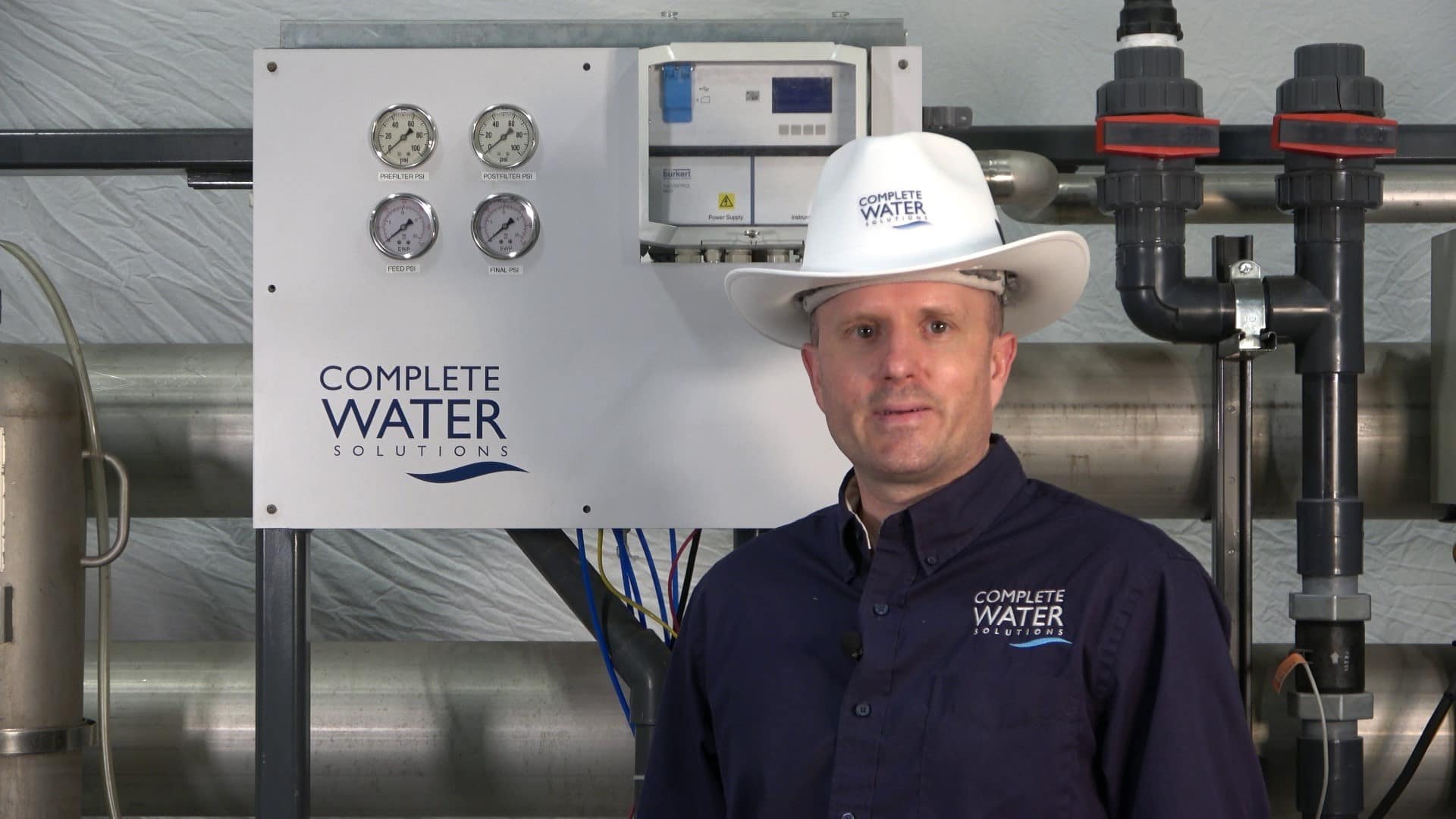
With over 30 years of hands-on experience in the water treatment industry, Nathan Olszak is a trusted water treatment expert. He specializes in designing, engineering, and servicing water treatment systems. As the owner of Complete Water Solutions, Osmonics, and Membrane Cleaning Pro, Nathan has built a reputation for delivering customized water treatment solutions that enhance efficiency, reliability, and water quality across various industries, including the medical, commercial, and manufacturing sectors.
Nathan’s journey in water treatment began as a service technician. He gained in-depth knowledge by working with all major brands of equipment, including Veolia, Suez, Bruner, Culligan, Pentair, Aquamatic, Osmonics, GE Water, Marlo, Lakeside, Fleck, Autotrol, US Filter, ION Pure, Siemens, Evoqua, and many others. This hands-on expertise, combined with his technical certifications, has made him a leader in water system engineering and water management.
Credentials & Expertise
- Certifications: David H. Paul Reverse Osmosis Certification, PLC Programming
- License: Power Plant Operating Engineer 3rd Class
- Specialties:
- Design & engineering of water treatment systems and advanced water systems
- Custom water filtration systems and solutions
- Installation, automation, and repair of water treatment systems
- Expertise in Reverse Osmosis (RO), Deionization, Water Softening, Carbon Filtration, Iron Filtration, UV Treatment, Ultrafiltration (UF), Process Filtration, CEDI/EDI, and more
- Specialized knowledge in Boiler Feed Water, Tower Makeup Water, and drinking water production for industries such as bottling, pharmaceuticals, and food processing
- Project management and reclaiming of water system waste for other uses
- Evaluation of raw water sources and potential contamination risks
- Industrial water treatment strategies to prevent corrosion and optimize system performance
- Boiler water treatment to enhance energy efficiency and system longevity
Nathan’s commitment to excellence extends beyond equipment sales and service. He works closely with clients to develop tailored water treatment services that optimize performance and meet their operations’ unique demands. His expertise covers methods that mitigate water impurities, ensure fresh water accessibility, and maintain regulatory compliance. It also includes the design of high-efficiency reverse osmosis systems for industrial use.
Nathan focuses on the latest technology in water conditioning, water softeners, filters, and pumps to improve maintenance and efficiency. His experience in laboratory testing and biofilm control ensures the highest industry standards in water treatment processes and water management.
Additionally, his deep understanding of infrastructure and water data analysis provides long-term, cost-effective solutions that promote health and safety. His expertise ensures that businesses receive top-tier, quality water treatment solutions.
For insights into the latest industry trends, innovations, and best practices, explore the Complete Water Solutions Blog, where Nathan shares valuable information on water filtration systems, sustainability, and water solutions engineering.
Give Us A Call (855) 787-4200 or Email info@complete-water.com



